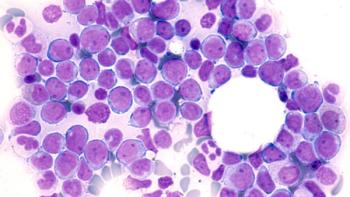
Why pharma needs security beyond a 'man on a gate'
The Director of Operations at a security firm explains pharma's need for intelligence and security.
Dave Freear, Director of Operations at Pilgrims Group speaks exclusively to Pharmaceutical Technology Europe about pharma's need for intelligence and security.
Q1: What security risks do pharma companies face that warrants the need for security personnel?
As well as the normal day-to-day risks such as theft and intruders, pharmaceutical companies also face specific risks based upon the medicinal products they produce and the constituent chemicals they handle — some of which are desirable by those seeking to abuse the active ingredients such as drug dealers and users.
Pharma companies are also in a modern day front line because of animal rights and single-issue extremism. By law, pharmaceutical products must be subject to extensive testing, including animal models, before they can be given to humans. This poses ethical issues and some people are prepared to employ violence to dissuade companies from animal testing.
There is also the threat of counterfeit operations and information leaks, which can be particularly significant because of the cost of development programmes and the revenues that can be gained by new drugs.
Q2: Are pharmaceutical companies very aware of these threats?
Most major companies are acutely aware of the possible security threats, and tend to utilize specialist security risk companies, such as our own, to conduct audits and ‘Gap’ analysis surveys to identify risks, and provide specialist intelligence, penetration testing, and bespoke training courses for management teams and senior directors. Security companies also provide design and project management of systems, close protection and rapid response services, such as evacuation, medical evacuation, crisis management and responding to single-issue extremist incidents.
There are, however, many smaller pharma and biotech companies that are not aware of the level and size of threat they face. These companies tend to have smaller budgets, but still require professional advice and in some cases emergency support.
Where large or small, all companies in the pharma and biotech industries require sound and reliable manned guarding services.
Q3: What measures can be enforced to reduce security risks?
One of the main factors in reducing security risk is good security education and awareness for all employees; information should be shared and everyone should be kept up to date to prevent unnecessary concern. Conducting regular tabletop exercises can also assess needs and response and can be used to train staff. Another factor that can reduce risk is to ensure that all new staff and suppliers are screened.
These actions are of paramount importance as it is often the employees who are not only the company’s biggest asset, but also its biggest security risk.
Q4: How have the security needs of pharma companies altered over the years?
As the industry has transformed and become more competitive, security needs have altered to meet the ever-changing world. Threats have gone from relatively low-key crime (e.g., paint attacks, breaking in and freeing animals, slashed tyres and demonstrations outside of offices) to higher level acts such as terrorism, physical attacks on individuals, sophisticated intelligence gathering on organizations and, in some cases, more serious incidents that still have ongoing police investigations. Protest groups can also organize and initiate coordinated attacks in several countries at the same time.
Q5: How do security threats to the pharma industry vary across Europe?
In the UK, many extremist groups have been broken up and their leaders placed in prison because of changes in law and counter terrorism measures. In other countries, however, extreme measures, such as car bombs, occur more frequently because it is considered easier for them to operate.
Because of the differing legal framework across Europe, some aspects of corporate security must be tailored to dovetail in with the law. In some cases, close co-operation with police and law enforcement agencies is necessary to legally deal with animal rights extremists or other security issues.
Q6: The Pilgrims Group has been working with the pharma industry for many years. What services does the company offer to the industry?
We provide numerous services including Gap analysis, security assessments, surveys, audits and penetration testing. We also conduct bespoke training courses for executives and staff, including a site security manager’s course, business traveller courses, tabletop incident control exercises, executive counter surveillance, and threat assessments for high-level executives and their families.
We also provide experienced manned guarding teams and close protection personnel for high-profile conferences and annual general meetings, and a range of intelligence and information services and products that offer vital up-to-date information on threats, such as extremist group activity.
Newsletter
Get the essential updates shaping the future of pharma manufacturing and compliance—subscribe today to Pharmaceutical Technology and never miss a breakthrough.




